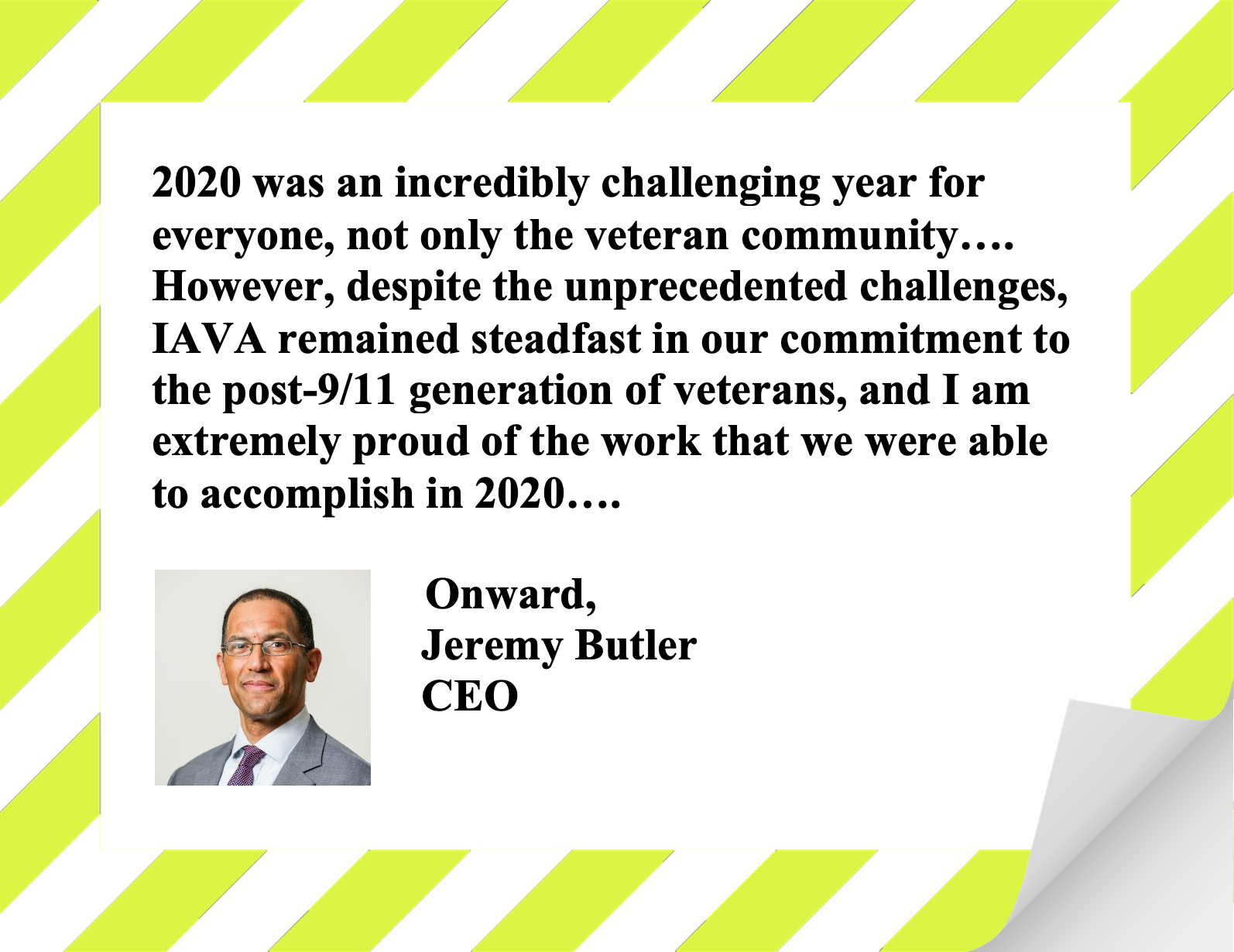IAVA's Policy Agenda for the 117th Congress
Combat Suicide among Troops and Veterans
Campaign to Combat Suicide among Troops and Veterans
For nearly a decade, IAVA and the veteran community have called for immediate action by our nation’s leaders to combat the crisis of 20 servicemembers and veterans dying every day from suicide. In the last two years, we made significant strides towards addressing this epidemic.
2020 was a groundbreaking year in mental health and suicide prevention. The passage of the IAVA-backed Commander John Scott Hannon Veterans Mental Health Care Improvement Act will result in critical reforms in how America combats the suicide crisis. Key provisions of this legislation will include the creation of a community grant program to help identify isolated veterans and provide mental health services, which is modeled after the extremely successful Supportive Services for Veteran Families (SSVF) program. These targeted programs are designed to identify the 14 veterans per day who die by suicide but are not currently participating in VA services and connect them to lifesaving resources. Additionally, this legislation will expand VA’s tele-health services at a time when veterans may be feeling more disconnected than ever before. These are critical improvements to VA care. But the work is not done.
According to the most recent VA data, the youngest cohort of veterans, post-9/11 veterans aged 18 to 34, have the highest rate of suicide. And while not always an indicator of suicide, mental health injuries continue to disproportionately impact the post-9/11 generation. In our latest member survey, a stunning 65% of IAVA members reported service-connected PTSD and over half reported anxiety (58%) or depression (56%). Meanwhile, the nation and VA struggle to keep up with the demand for mental health care and mental health care providers such as psychiatrists and psychologists, both of which are in the top 5 for VA staffing shortages.
Over the past few years, there has been much progress made in the realm of suicide prevention and mental health. The VA, DoD, and DHS’ plan for transitioning service members targets those in the post-9/11 generation at increased risk of suicide to engage with them before the moment of crisis. VA has leveraged tele-mental health care to expand its reach and predictive analytics to target the top 0.1% of veterans at risk for suicide. These reforms are critical to addressing the suicide crisis and IAVA remains dedicated to combating suicide.
IAVA's Approach
Mental Health and Suicide Prevention Support for Guardsmen and Reservists
Mental Health and Suicide Prevention Support for Guardsmen and Reservists
Members of the National Guard and Reserve Component of the Armed Forces are an essential force within our military. In fact, 37% of DoD’s current force is made up of National Guard or Reservists. According to IAVA’s own members, 61% were or are members of the National Guard or Reserves.
It is imperative to ensure these essential members of our military have access and support to quality mental health care. Guardsmen and Reservists often face different rules, regulations, and classifications on how they can access care, especially when they transition out of the military. An estimated 3 of the 20 daily military and veteran suicides are Guard and Reservists who were never federally activated and who do not qualify for many services under current VA regulations.
This is why IAVA and our allies fought hard for the Commander John Scott Hannon Veterans Mental Health Care Improvement Act, which included important provisions to expand mental health care to National Guardsmen and Reservists.
IAVA's Recommendations
- Ensure all National Guardsmen and Reservists have access to mental health care no matter how long they have served on active duty and regardless of deployments
- Ensure Vet Centers are fully staffed and funded
- Expand outreach to National Guardsmen and Reservists about the mental health and suicide prevention services available to them
- Expand telemental health resources to extend to National Guardsmen and Reservists, including those that were never federally activated or called to active duty
IAVA's Policy Priorities
Select a topic from the list below to learn about IAVA’s policy recommendations for the 117th Congress.

